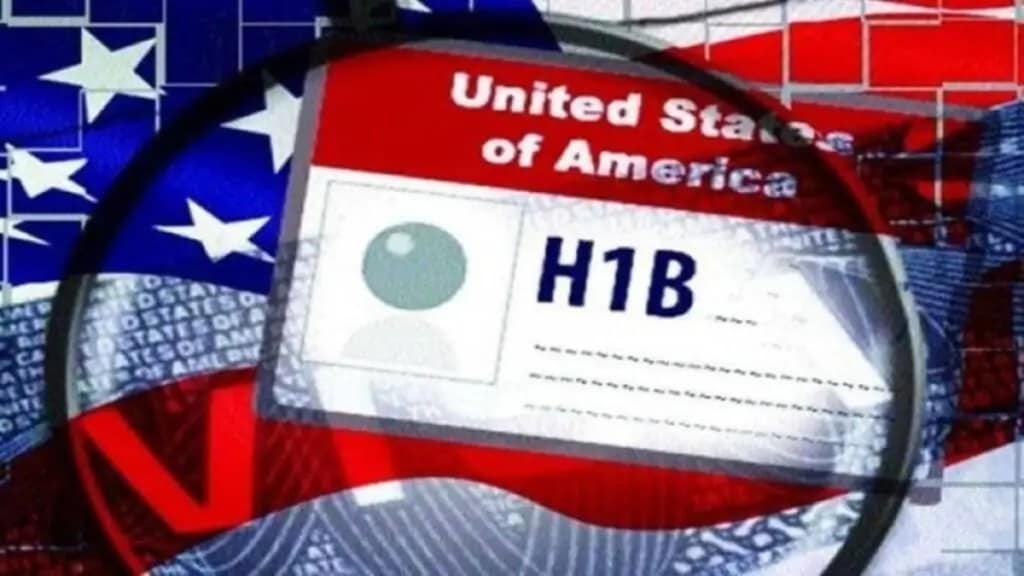The H-1B visa program helps American businesses in recruiting highly talented foreign workers. However, U.S. Citizenship and Immigration Services (USCIS), the agency that manages immigration, highlights that far too many American workers who are equally competent, motivated, and deserving to work in these industries have been overlooked or unfairly punished.
This is likely because H-1B visa fraud appears to be commonplace in America. Kishore Dattapuram was sentenced today to 14 months in federal prison for visa fraud and conspiracy to commit visa fraud. Dattapuram worked with his co-defendants to submit fraudulent H-1B applications that falsely represented that foreign workers had specific jobs waiting for them at designated end-client companies when, in fact, the jobs did not exist.
Also, there are US employers who exploit the H-1B visa program a indirectly harm American workers by lowering wages and opportunities by hiring more foreign labor.
Recently, US Equal Employment Opportunity Commission (EEOC) Acting Chair Andrea Lucas announced – The EEOC is putting employers and other covered entities on notice: if you are part of the pipeline contributing to our immigration crisis or abusing our legal immigration system via illegal preferences against American workers, you must stop. The law applies to you, and you are not above the law. The EEOC is here to protect all workers from unlawful national origin discrimination, including American workers.”
USCIS has been increasing site visits, interviews, and investigations of petitioners who use the H-1B visa program. These efforts ensure that American workers are not overlooked or replaced in the process.
Anyone, including American workers and H-1B workers, who suspects they or others may be the victim of H-1B fraud or abuse can send tips, alleged violations, and other relevant information about potential fraud or abuse to the USCIS.
Examples of H-1B fraud indicators may include:
- The H-1B worker is not or will not be paid the wage certified on the Labor Condition Application (LCA).
- There is a wage disparity between H-1B workers and other workers performing the same or similar duties, particularly to the detriment of U.S. workers.
- The H-1B worker is not performing the duties specified in the H-1B petition, including when the duties are at a higher level than the position description.
- The H-1B worker has less experience than U.S. workers in similar positions in the same company.
- The H-1B worker is not working in the intended location as certified on the LCA.
The available data from the American Immigration Council also indicates that H-1B workers do not earn low wages or drag down the wages of other workers. In 2021, the median wage of an H-1B worker was $108,000, compared to $45,760 for U.S. workers in general. Moreover, between 2003 and 2021, the median wage of H-1B workers grew by 52 percent. During the same period, the median wage of all U.S. workers increased by 39 percent.
Protections for H-1B Workers Who Report Suspected Fraud or Abuse
If an H-1B worker reports suspected fraud or abuse, immigration law may provide certain protections to these workers. If an H-1B worker:
- Applies to extend their H-1B status or change their nonimmigrant status,
- Indicates that they faced retaliatory action from their employer because they reported an LCA violation, and
- Lost or failed to maintain their H-1B status,
Normally, H‑1B workers are not eligible to extend or change their status if they have lost or failed to maintain their H-1B status. However, if they can demonstrate ‘extraordinary circumstances,’ USCIS may use their discretion to excuse this requirement on a case-by-case basis.
Targeted site visits
USCIS conducts random administrative site visits to ensure that employers and foreign workers are complying withthe requirements of the H-1B nonimmigrant classification.
USCIS verifies H-1B workers’ wages, job duties, and work locations during site visits. This action is not meant to target nonimmigrant employees for any kind of criminal or administrative action but rather to identify employers who are abusing the system.
USCIS seeks to determine if workers are not being paid while in the United States as they wait for projects or work, a practice known as “benching” which violates U.S. immigration laws.
Targeted site visits will also help USCIS determine whether H-1B-dependent employers who normally must meet H-1B recruitment attestation requirements are actually paying their workers the statutorily required salary to qualify for an exemption from these requirements.
These site visits will assist in determining if these employers are evading their obligation to make a good faith effort to recruit U.S. workers and to not displace U.S. workers.
USCIS’s Targeted Approach
H-1B-dependent employers (those who have a high ratio of H-1B workers as compared to U.S. workers)
Cases where USCIS cannot validate the employer’s basic business information through commercially available data; and
Employers petitioning for H-1B workers who work off-site at another company or organization’s location.
